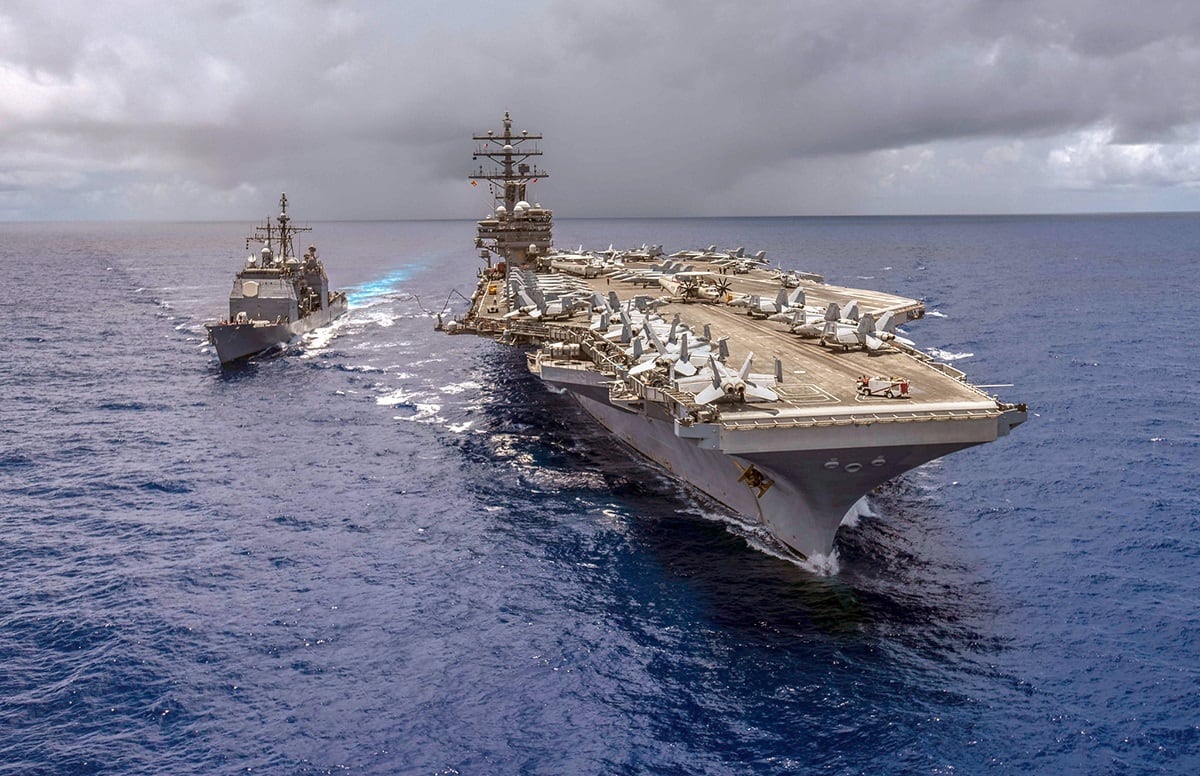WASHINGTON — The U.S. Navy is looking to build a new generation of destroyers from a clean-sheet design, following the model of one of its most successful ship classes, the Arleigh Burke-class DDG, the service’s top officer said Tuesday.
The idea, colloquially referred to in-house as DDG Next, is to build a new hull smaller than the nearly 16,000-ton Zumwalt-class destroyer but still big enough to accommodate a larger missile magazine, Adm. Michael Gilday told a virtual audience at Defense One’s State of the Navy event.
“I don’t want to build a monstrosity. But I need deeper magazines on ships than I have right now,” the chief of naval operations said. “I’m limited with respect to DDG Flight IIIs in terms of what additional stuff we could put on those ships. … So the idea is to come up with the next destroyer, and that would be a new hull. The idea would be to put existing technologies on that hull and update and modernize those capabilities over time.”
RELATED

The Navy is supposed to start buying the new ship in 2025, according to the service’s 2020 30-year shipbuilding plan, though it’s unclear how its forthcoming force structure assessment will affect those plans. In his recent speech on the Defense Department’s plan for a 500-plus ship Navy, Defense Secretary Mark Esper made no mention of the future large surface combatant.
To avoid another costly failure, such as the canceled next-generation cruiser or severely truncated DDG-1000 program, the service is harkening back to its successful Arleigh Burke program, the mainstay of the Navy’s surface combatant program for the past 30 years, Gilday said. Much like on the forthcoming Constellation-class frigates, the service plans to install fielded systems on the new ship and upgrade them over time.
“So think DDG-51 (that’s exactly what we did): We had a new hull but we put Aegis on it,” Gilday said. “We put known systems that were reliable and were already fielded out in the fleet. That’s kind of the idea. I call it DDG Next to kind of right-size it. Smaller than a Zumwalt but packing some heat nonetheless.”
The Navy estimates it would need $22 billion annually in constant year 2019 dollars to execute its old shipbuilding plan, though the Congressional Budget Office put the estimate more than 30 percent higher. A major driver in the difference between the CBO and Navy estimate was the cost of a future large surface combatant, according the Congressional Research Service.
The emergence of hypersonic missiles has been a driving factor in the Navy’s desire to field a new large surface combatant since such weapons wont fit in the current vertical launch system cells on Burke-class destroyers and existing cruisers. They will, however, fit in the Virginia Payload Module being built into the Block V Virginia submarines awarded last year.
David B. Larter was the naval warfare reporter for Defense News.







